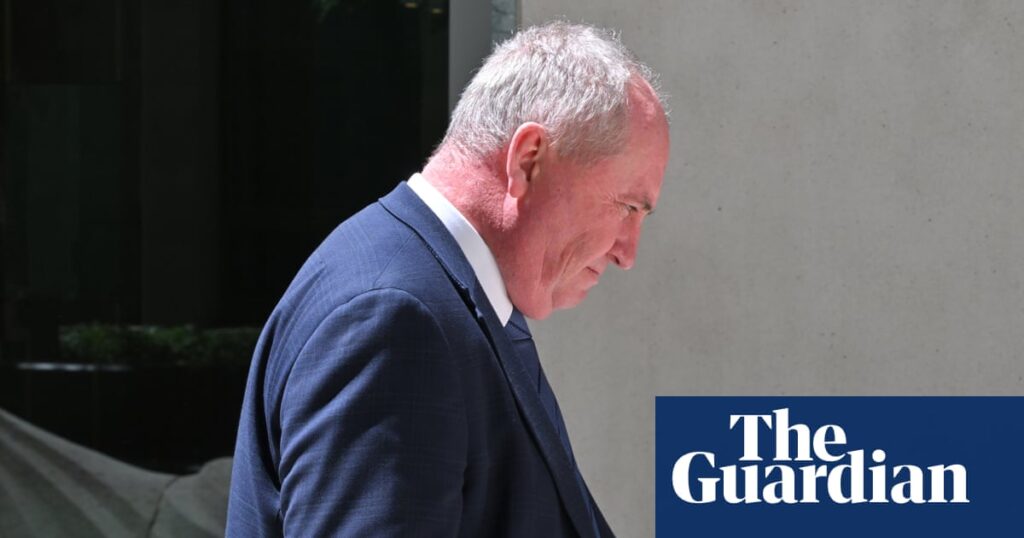
In a dramatic move that has sent ripples through Australian politics, Barnaby Joyce announced his resignation from the National Party on Thursday, a decision that one former colleague has labeled as “an act of treason.” Joyce, who has been a prominent figure in the party for three decades, declared his intention to seek “a better position” than the Coalition backbenches, leaving open the possibility of joining One Nation or becoming an independent crossbencher.
Joyce’s announcement came during a brief statement to the House of Representatives, just before the last question time of the year. He expressed disappointment over his recent treatment by the National Party leadership, stating, “When I announced this about five weeks ago, apart from a 90-second conversation with the leader, I had no communication with the leader of the National party or the deputy leader. So that’s disappointing.”
Political Fallout and Reactions
The news of Joyce’s resignation has drawn varied reactions from his colleagues and political analysts. David Littleproud, the current leader of the Nationals, accused Joyce of breaking a contract with voters, expressing his disappointment for the people of New England and the party members who have supported Joyce’s political career over the years.
Former deputy prime minister Michael McCormack, who has had a contentious relationship with Joyce, urged him to reflect on the opportunities the National Party had afforded him, including twice leading the party. McCormack revealed his efforts to persuade Joyce to remain, but acknowledged, “This cannot end well.”
“It is disappointing for the people of New England and disappointing for the loyal National party members who tirelessly volunteered over the past two decades to support his political ambitions,” said David Littleproud.
Speculation on Future Moves
While Joyce has not confirmed whether he will join One Nation, he has stated he is “strongly considering” the move. His potential defection has sparked concern among some Nationals, who fear it could impact the party’s ability to retain regional seats in the face of a rising One Nation vote. Senator Matt Canavan, a close ally of Joyce, expressed hope that Joyce might still return to the Nationals, emphasizing the party’s mission to improve Australia rather than focus on personal relationships.
Several Nationals sources indicated that while some members are relieved to see Joyce depart, others view his exit as a significant blow. The public courting between Joyce and One Nation’s Pauline Hanson, including a much-publicized dinner earlier in the week, has only fueled speculation about his future political alignment.
Historical Context and Expert Opinions
Joyce’s departure from the Nationals is not without precedent in Australian politics, where party defections and leadership challenges have often reshaped the political landscape. Political analyst Dr. Anne Richards commented, “Joyce’s resignation is reminiscent of the internal party struggles that have historically led to significant shifts in power dynamics within Australian politics.”
Dr. Richards further noted that Joyce’s decision could reflect broader discontent within the party ranks, particularly among those who feel marginalized by current leadership. “This move might encourage other backbenchers to reassess their positions and alliances,” she added.
“Joyce’s resignation is reminiscent of the internal party struggles that have historically led to significant shifts in power dynamics within Australian politics,” said Dr. Anne Richards.
Implications and Future Prospects
The implications of Joyce’s resignation are multifaceted. For the Nationals, it represents both a challenge and an opportunity to consolidate their base and address internal divisions. For Joyce, it opens a new chapter in his political career, one that could see him wield influence from the crossbench or as a member of a different party.
As the political landscape continues to evolve, Joyce’s next steps will be closely watched by both supporters and critics. Whether he chooses to align with One Nation or pursue an independent path, his decision will likely have lasting impacts on the dynamics of regional Australian politics.
As the year draws to a close, the focus will shift to how the Nationals navigate this period of transition and what strategies they will employ to maintain their relevance and influence in the face of emerging political challenges.






